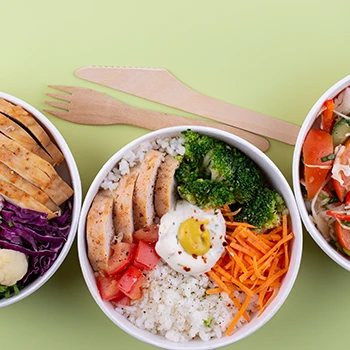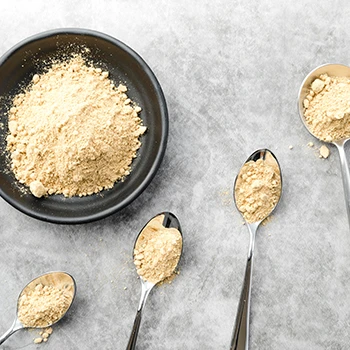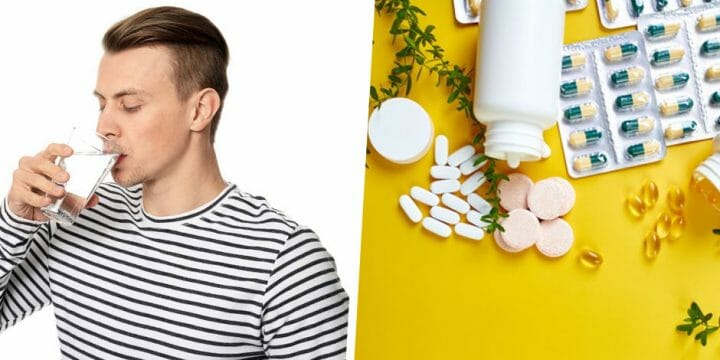As a fitness trainer, I cannot stress enough the importance of consuming enough protein.
Some of my clients have difficulty getting the amount they need through whole foods, so I usually advise them to include a protein shake in their routine because it can boost their protein intake by an average of 25 grams.
The question that arises quite often is whether drinking protein shakes on rest days is beneficial.
In my years in the fitness community, I have learned it is, and in this article, I will tell you why.
Quick Summary
- Consuming protein shakes on rest days is beneficial for supporting muscle protein synthesis, crucial for muscle growth and recovery.
- Protein shakes offer a convenient way to meet daily protein requirements, especially for those who struggle to consume enough protein through whole foods.
- The human body requires 9 essential amino acids from external sources like food and supplements, as it cannot produce them internally.
- Personally, I believe that incorporating protein shakes on rest days is a practical approach to ensure consistent protein intake for optimal muscle health and recovery.
Should You Drink Protein Shakes on Rest Days?

You should drink protein shakes on rest days to further support muscle protein synthesis, which is essential to muscle growth and recovery.
Protein is essential to sports nutrition and overall health because every cell in the body needs protein.
According to MedLine Plus, the human body does not produce the 9 essential amino acids which make up protein that’s made in the body, so we must get them from external sources like whole foods and protein supplements [1].
Let’s explore just a few ways that eating more protein can benefit you.
According to HealthLine, meeting your body’s protein needs can [2]:
- Reduce appetite
- Increase muscle mass and strength
- Aid muscle recovery
- Support bone health
- Reduce cravings and snacking
- Boost metabolism and promote fat burning
- Lower blood pressure
- Help you lose weight and maintain weight loss
- Aid recovery after injury

As you can see from this list, the benefits of proper protein consumption are vast, encompassing the body's many functions, structures, and regulatory systems.
Consuming a protein shake on rest days can further support this complex system of processes.
Let’s examine what protein is and why it is so important.
What is Protein, and Why is it Important (Even On Rest Days)?
According to reserch from Britannica, protein is a naturally occurring natural substance that is very complex and present in all living organisms and is involved in chemical processes that sustain life [3].
So what does that all mean for you?
Building blocks, known as amino acids, make up protein, which is found everywhere in the human body; muscle, bone, hair, skin, and other tissues.
As per WebMed, a protein called hemoglobin is integral in fueling your system by carrying oxygen throughout your body via the bloodstream, which is an invaluable process when working out [4].
Consuming enough protein increases blood flow, allowing more oxygen and nutrients to reach your hard-working muscles during exercise.
Research by National Institute of Health (NIH) notes that, not meeting your protein requirements can result in weakness and fatigue, leading to loss of lean muscle mass and slower metabolism [5].
How Much Does Your Body Need?

How much protein your body needs depends on several factors like age, sex, health, and physical activity level.
Very active individuals will require a higher protein diet than those who are not as active.
Most research recommends that a very active person consume 1.2-2 grams of protein per kilogram of body weight.
For example, a research from Michigan State University notes that a 150-pound person should eat between 82-136 grams daily [6].
Less active individuals do not need as much protein and should aim to consume 0.8 grams per kilogram of body weight.
“Protein is a nutrient that helps keep you full. Getting sufficient protein in your diet is important for many reasons, but it may help promote weight loss, partly by decreasing your appetite”.
-Cecilia Snyder, MS, RD
What Are Your Macro Targets?

When someone is trying to lose weight or just exercises regularly to maintain fitness, one of the long-standing trends is to count macronutrients, including protein, the other two macros being fat and carbohydrates.
The macronutrient ratio can vary from person to person depending on any health conditions or dietary restrictions.
According to HeathLine, people with type 2 diabetes may need to stick to a low carbohydrate intake to control blood sugar levels.
Others without underlying health issues may feel less hungry on a higher-fat, low-carb diet versus a high-carb, low-fat diet [7].
Whatever macros ratio works for you, the critical point in weight loss and fitness is maintaining a calorie deficit.
Whole Food Protein Sources vs. Shakes
From my personal journey, I've found that whole foods have a unique advantage over protein shakes on rest days.
I recall a period when I switched to whole foods like chicken, eggs, and dairy on my rest days. This not only provided me with essential amino acids but also a broader spectrum of nutrients.
The difference in how I felt overall was remarkable – more satiated, more energized, and my recovery seemed more efficient.
Optimal muscle recovery involves a balance of nutrients from diverse sources. Incorporating whole foods on rest days ensures a comprehensive nutritional profile, fostering better long-term health, and supporting the body's recovery process beyond protein synthesis.
Different Types of Powders

Whey protein powder is the most widely used and tolerated well by most people.
- As per HealthLine, whey protein comes from milk, digests quickly, and is rich in branched-chain amino acids (BCAAs) [8].
- Casein protein also comes from milk but is digested more slowly.
- As the name suggests, egg protein comes from eggs but just the whites rather than the whole egg. The egg is a high-quality protein option by itself that digests quite easily.
- Pea protein supplements are popular among vegetarians, vegans, or people with milk or egg allergies. Pea protein comes from yellow split pea and contains all but one of the essential amino acids.
Other protein powders are less common and usually a bit more expensive, including hemp, mixed plant, or brown rice protein.
Again because whey is generally well tolerated, readily available, and the most cost-effective, it is an excellent place to start when implementing it into your fitness routine on workout and rest days.
FAQs
Is It Safe To Drink A Protein Shake Every Day?
It is safe to drink a protein shake every day. Protein shakes are high-quality protein sources and a convenient way to ensure you hit your goal if you don’t consume protein through a whole food diet.
Should I Take The Same Amount Of Protein On Rest Days?
You should take the same amount of protein on rest days to promote muscle protein synthesis, which mainly happens during rest and is responsible for muscle gain.
Protein shakes and whole foods can help you get the protein you need. You can also drink protein powder by adding it to a fruit smoothie; this is a great breakfast option to kickstart your day.
References:
- https://medlineplus.gov/dietaryproteins.html
- https://www.healthline.com/nutrition/10-reasons-to-eat-more-protein
- https://www.britannica.com/science/protein
- https://www.webmd.com/diet/benefits-protein
- https://pubmed.ncbi.nlm.nih.gov/11108325/
- https://www.canr.msu.edu/news/protein_intake_for_athletes
- https://www.healthline.com/nutrition/best-macronutrient-ratio#macro-ratio
- https://www.healthline.com/health/best-protein-powder
About The Author
You May Also Like






